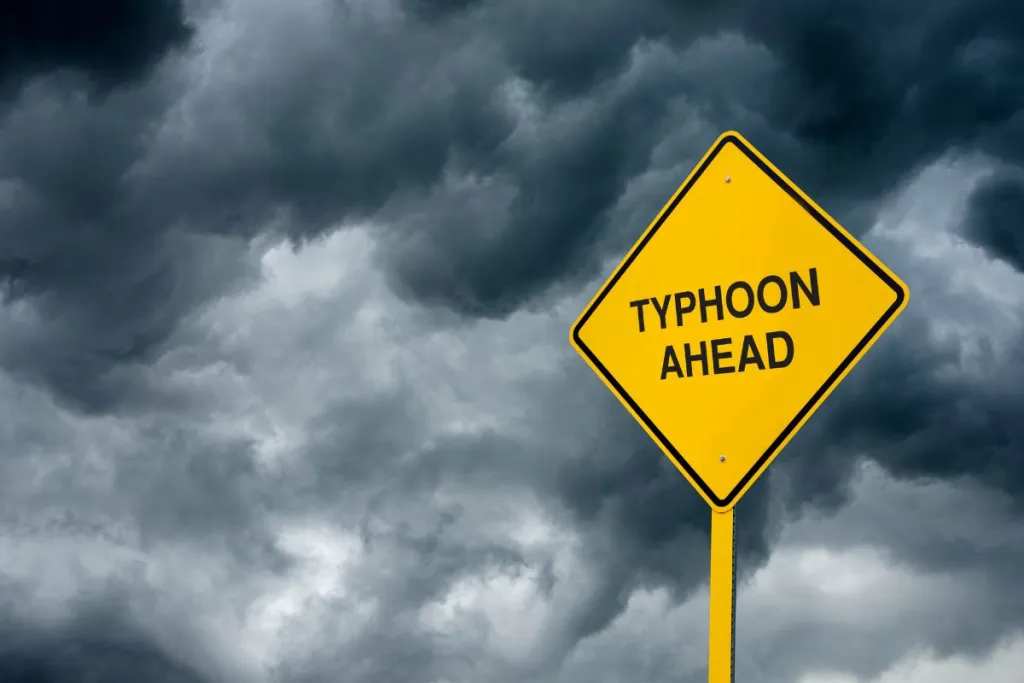Kowloon offers halal‑certified options for every craving Muslim travellers!
Typhoon Wipha Hits Hong Kong & Southern China: What Muslim Travellers Need to Know

Typhoon Wipha brought Hong Kong and parts of southern China to a standstill over the weekend, throwing the travel plans of thousands into chaos, including many Muslim travellers on layovers or summer holidays. If you’re flying through the region or planning to visit soon, here’s everything you need to know about what happened and how it could affect your journey.
Flights grounded, plans disrupted
On Sunday, airports across Hong Kong, Shenzhen, Zhuhai, and Macao were forced to cancel or delay most flights as Typhoon Wipha swept along the coast. In Hong Kong alone, more than 400 flights were grounded, leaving an estimated 80,000 passengers stranded. Some high-speed train services were also suspended, making it even harder for travellers to reroute or find alternative ways to reach their destinations.
For Muslim travellers, the disruption was especially stressful during long layovers or delays. Thankfully, facilities like the prayer rooms at Hong Kong International Airport and Macao International Airport provided quiet spaces for worship, while halal-certified eateries at these airports offered food options for those stuck waiting for services to resume.
A powerful storm rolls through
The Hong Kong Observatory issued its highest hurricane warning, Signal No. 10, as Typhoon Wipha approached the city. Around midday, the eye of the storm passed just south of Hong Kong, bringing with it intense winds that reached 140 kilometres per hour (87 miles per hour). By early evening, at around 6 p.m., the typhoon made landfall in Taishan, Guangdong Province, before weakening to a severe tropical storm with sustained winds of 108 kilometres per hour (67 miles per hour).
The storm’s powerful gusts were strong enough to topple trees across Zhuhai and other coastal cities, block roads, and force businesses and attractions, including Hong Kong Disneyland and other amusement parks, to close for safety. Travellers in the region were advised to remain indoors and avoid unnecessary movement during the worst of the storm.
Damage, injuries, and displaced families
Hong Kong’s government reported over 450 cases of fallen trees across the city. Public hospitals treated 26 people for storm-related injuries, although details on the severity of these injuries were not released. Additionally, more than 250 people took refuge in public shelters as their homes and streets became unsafe during the typhoon.
For Muslim travellers, finding accommodation was a challenge as hotels near the airport quickly filled up due to grounded flights and extended delays. Some Muslim-friendly hotels in Hong Kong offered emergency stays, helping stranded travellers find food and safe spaces to rest and pray while waiting for flights to resume.
The storm’s regional trail
Wipha, which takes its name from Thailand, is not done yet. After striking Hong Kong and China, the storm is expected to reach Vietnam later this week. Before making landfall in China, Wipha passed over the Philippines at tropical storm strength, where it caused significant flooding and damage. One person was reported dead in northern Cagayan Province, while more than 370,000 people were affected by the storm. Of these, 43,000 were forced to evacuate to government-run emergency shelters or stay with relatives due to flooding, landslides, and strong winds. More than 400 homes were also damaged, leaving many families in need of assistance.
Parts of Taiwan also felt Wipha’s impact as the storm drenched the island on Saturday, disrupting travel plans and outdoor activities. Meanwhile, in a separate weather disaster, South Korea has been dealing with five consecutive days of torrential rain, which has left 14 people dead and 12 others missing.
What should Muslim travellers do?
For those currently in or planning to travel to Hong Kong, Macao, or nearby Chinese cities, it’s essential to stay vigilant and flexible. Checking your flight status frequently is a must, as delays and rescheduling are still common even after the storm has passed. Keeping halal snacks on hand can be a lifesaver if you’re stuck at airports where food options are limited during disruptions.
Prayer rooms are available at Hong Kong and Macao airports, as well as several major train stations, so Muslim travellers can comfortably observe their prayers while waiting for their flights. Booking accommodations early, especially near the airport, is highly recommended since hotels tend to fill up quickly when storms cause mass delays. Most importantly, keep a close eye on local advisories and reliable weather apps so you know when it’s safe to head out again.
While Typhoon Wipha continues to move toward Vietnam, it serves as a reminder for all travellers — especially Muslim travellers planning halal-friendly trips — to prepare carefully during typhoon season, which runs from June to October in East and Southeast Asia. With some planning and awareness, you can stay safe, find halal-friendly services, and navigate weather disruptions without too much stress.
Published at
About Author
Aimi Zulkiflee
Subscribe our Newsletter
Get our weekly tips and travel news!
Recommended Articles
15 Best Halal Foods in Kowloon, Hong Kong Top Muslim-Friendly Things to Do at The Newest Antara Genting Highlands It’s located between Peacehaven Campsite and Cradle Rock Genting Highlands, along Jalan Utama Genting Highlands
10 Popular Halal Restaurants in Shenzhen, China for Muslim Travellers Lets try halal food at Shenzhen, China
12 Popular Halal Eateries in Hong Kong Hong Kong is more muslim friendly now!
13 Best Mosques Around The World Best Mosques Around The World – With so many mosques all over the world, most of those that we are used to seeing have the same architectural design, with minarets and other symbolic traditional elements. However, all around the world, the thought put into designing mosques are ever-changing – some with out-of-this-world creative outcomes, while […]
Latest Articles
Sapporo Winter Festival 2026: The Ultimate Guide for Muslim Travellers Get ready for the biggest winter festival in Japan!
10 Spots to Find the Most Authentic Halal Pho in Ho Chi Minh City, Vietnam Here are our favorite spots for authentic Halal Pho in Saigon.
10 Family-Friendly Theme Parks in Bandung for an Unforgettable Getaway From cozy indoor spaces to spots offering breathtaking natural views of Bandung.
8 Must-Stay Hotels in Canada with the Most Stunning Natural Views you need a room with a view!
Exploring Iconic Canada: From Dreamy Aurora Views to Trending K-Drama Filming Spots you might have spotted the breathtaking landscapes in Canada

